North Carolina Senate Republicans unveiled spending priorities on Tuesday for the coming fiscal year, labeling what they consider their must-haves despite plummeting revenues due to the COVID-19 economic downturn.
The chamber’s three leading budget-writers filed nearly 20 bills, with an emphasis on ensuring teachers and workers get paid, K-12 schools and higher education can instruct more students and funding continues for key long-term projects.
The government spending bills largely lack price tags. The three senators — Republicans Harry Brown, Kathy Harrington and Brent Jackson — said in a news release that the amounts won’t be clear until an updated tax collections forecast is released by state economists.
That projection could be released this week, but Senate leader Phil Berger and House Speaker said Monday that they could have to address a $4 billion shortfall during the next fiscal year. A previous forecast months before the pandemic projected the state would collect $26 billion in revenues next year. Berger has said repeatedly his goal is to avoid layoffs and significant cuts like those required during the Great Recession a decade ago.
One Senate bill would put an additional $623 million in the state’s rainy day reserve fund, which currently holds almost $1.2 billion.
The Senate’s spending priorities will compete with those from the Republican-controlled House and from Democratic Gov. Roy Cooper during the annual General Assembly session, which is likely to continue through June.
The budget process ran off the tracks last year when Cooper vetoed the GOP’s two-year spending plan and attempts at compromise sputtered. State government has operated this year under a series of separate “mini-budget” bills that Cooper agreed to sign.
Another measure filed Tuesday would create a reserve to fund salaries for teachers, police officers and other key workers. Other bills would cover enrollment growth in the public schools and the university and community college systems.
Proposals also would provide funds for University of North Carolina system building construction and maintenance; to pay the state’s debt service and retirement contributions; and to ensure Medicaid’s long-delayed switch to managed care takes place before January.
Related Stories
‹

NC Sen. Graig Meyer on State and Federal Impasses, Healthcare Premiums, And The Redistricting BattleNorth Carolina District 23 Sen. and Democrat Graig Meyer joined 97.9 The Hill to discuss the ongoing impasse at the state legislature.
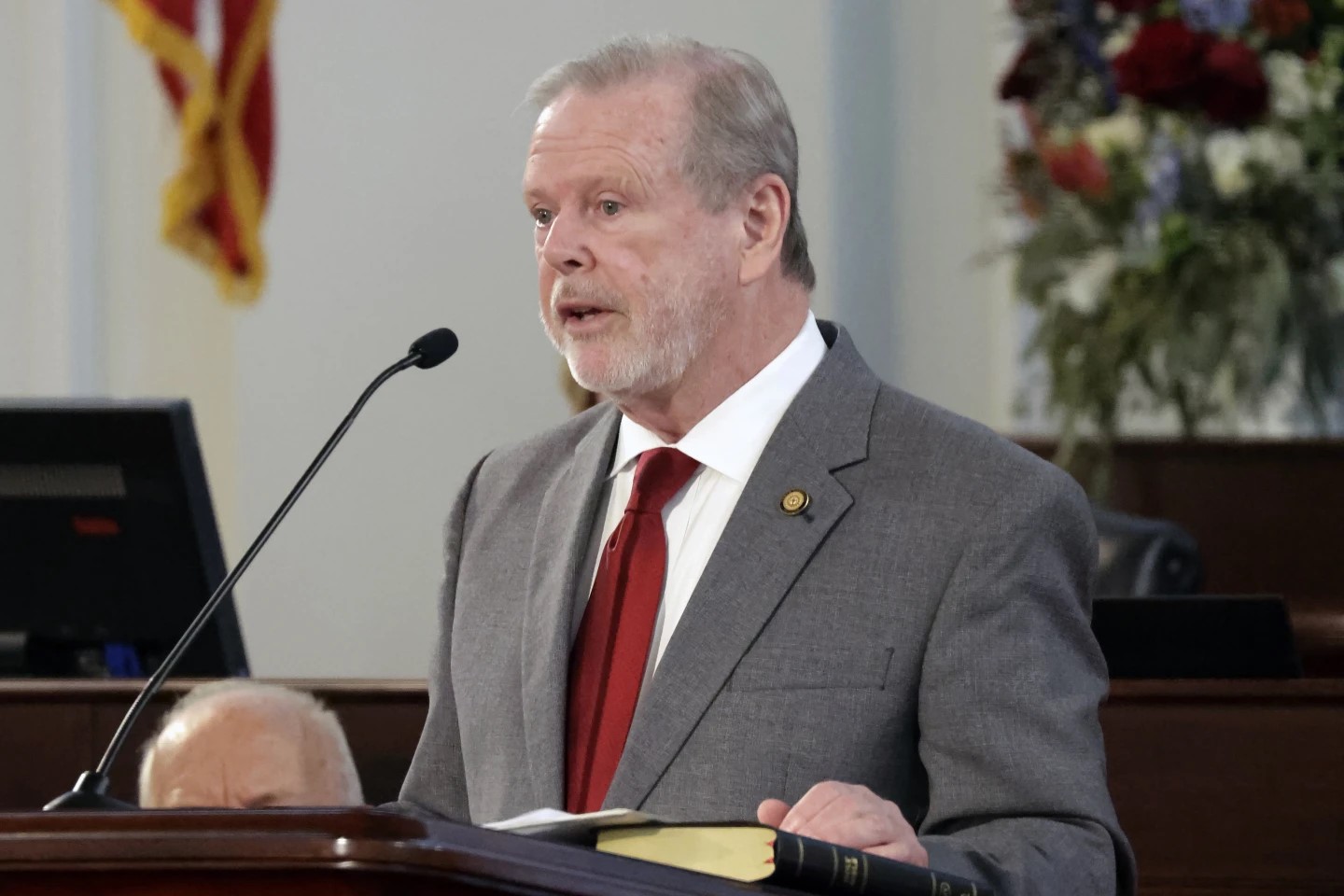
North Carolina Budget Plan Advances as Senate Republicans Double Down on Tax CutsNorth Carolina Senate Republicans advanced a two-year budget that doubles down on already enacted income tax cuts.
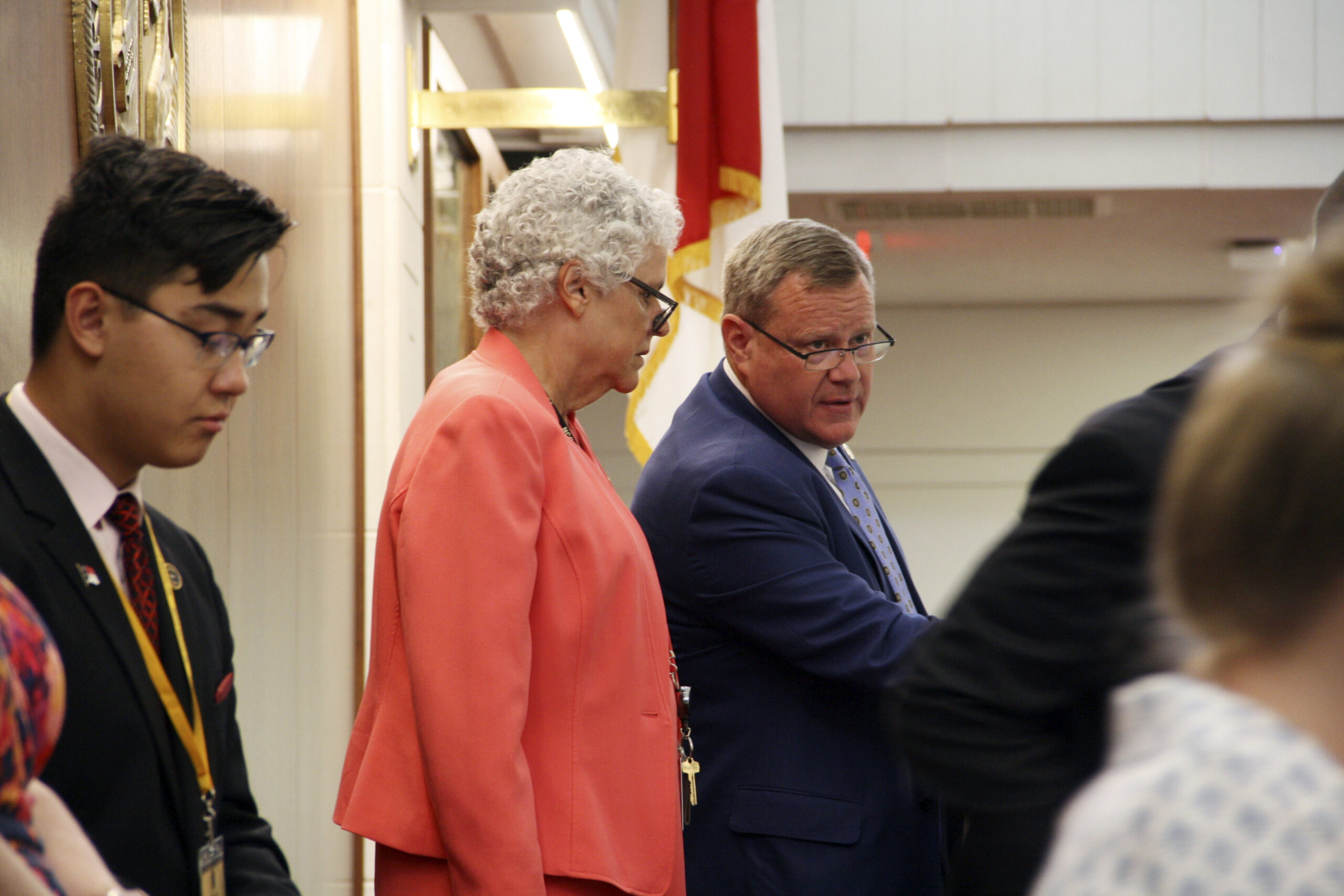
North Carolina Legislators Consider Vetoes, Constitution Changes as Work Session Winds DownThe North Carolina General Assembly raced Wednesday to advance legislation before completing its chief working session for the year
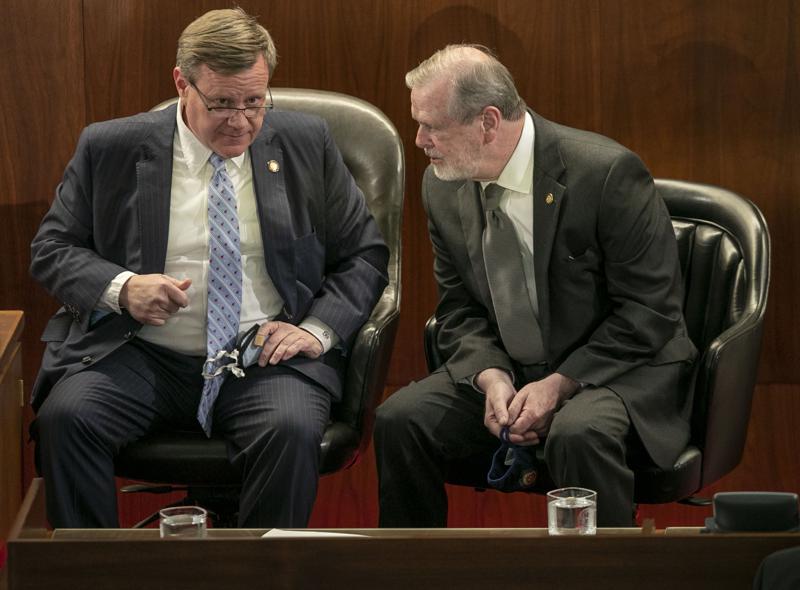
North Carolina Republicans Are in a Budget Standoff Because of Gambling ProvisionsWritten by GARY D. ROBERTSON Republicans at the North Carolina legislature converged Tuesday in a standoff over an already long-delayed budget plan because the House and Senate disagree on adding provisions that would further expand state-sanctioned gambling. House Speaker Tim Moore said not enough of his GOP colleagues in the chamber are willing to support a […]
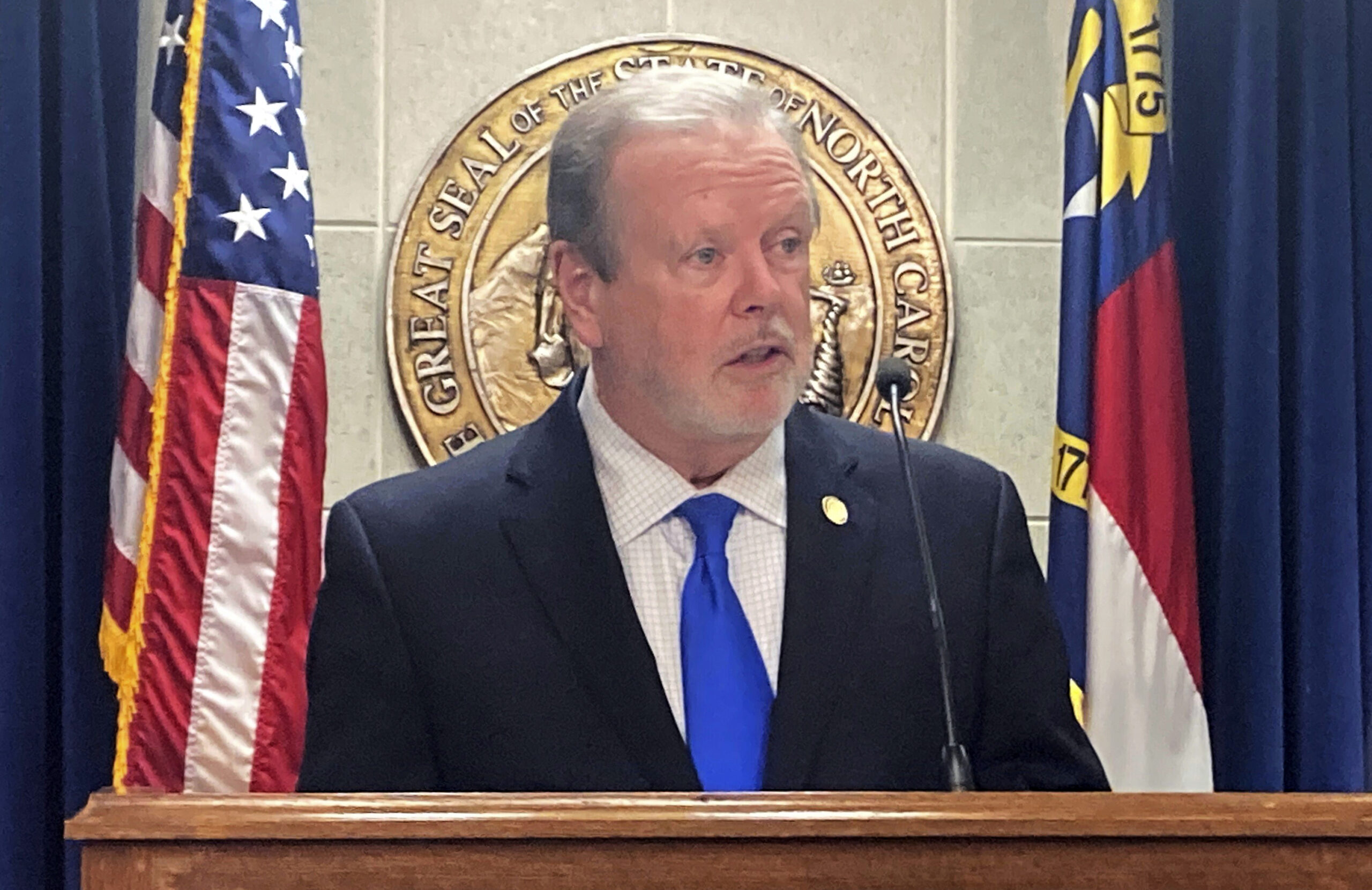
North Carolina Senate Unveils State Budget With Deeper Tax Cuts, Lower Raises Than House ProposalWritten by GARY D. ROBERTSON North Carolina Senate Republicans revealed their proposed two-year state government budget proposal Monday, one that would further reduce personal income taxes but offer less generous pay raises for workers compared to what their House counterparts sought. The Senate plan spends the same amounts as the House budget bill approved last month, with $29.8 […]

Republicans: NC Budget-Writers Close On Spending AdjustmentsWritten by GARY D. ROBERTSON North Carolina House and Senate budget-writers are close to completing their work on proposed adjustments to the second year of a two-year state spending plan approved last fall, top Republican legislators said Tuesday. House Speaker Tim Moore and Senate leader Phil Berger separately told reporters they anticipate meeting later this […]
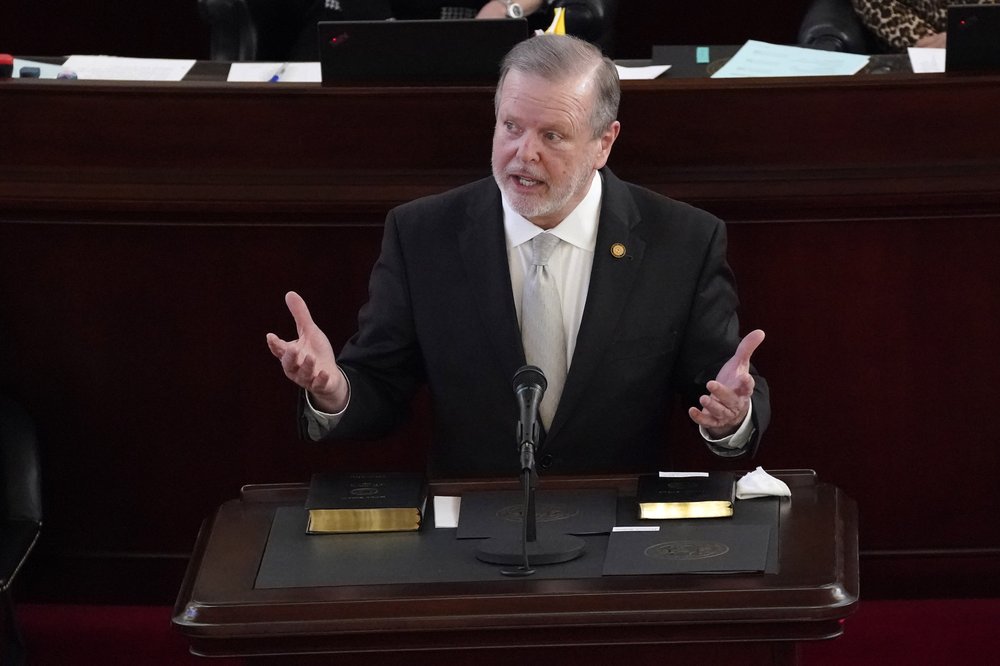
NC Senate Budget Gets Final OK; House Makes Own Plan NextA two-year North Carolina government budget that spends, saves and cuts taxes thanks to a state revenue boon and billions more federal COVID-19 relief funds cleared the Senate on Friday. Four Democrats joined all Republicans in voting for the spending proposal — just like Thursday when the chamber completed the first of two required votes […]

North Carolina COVID-19 Package Gets Final General Assembly OKThe General Assembly on Saturday finalized a relief package to address the new coronavirus pandemic in North Carolina, agreeing to send money to schools, hospitals, local governments and researchers. A pair of bipartisan measures approved unanimously by the House and Senate direct how nearly $1.6 billion in federal COVID-19 funds are distributed and how scores […]
![]()
Even with Consensus Talk, Gap Remains for NC Virus Aid Bills 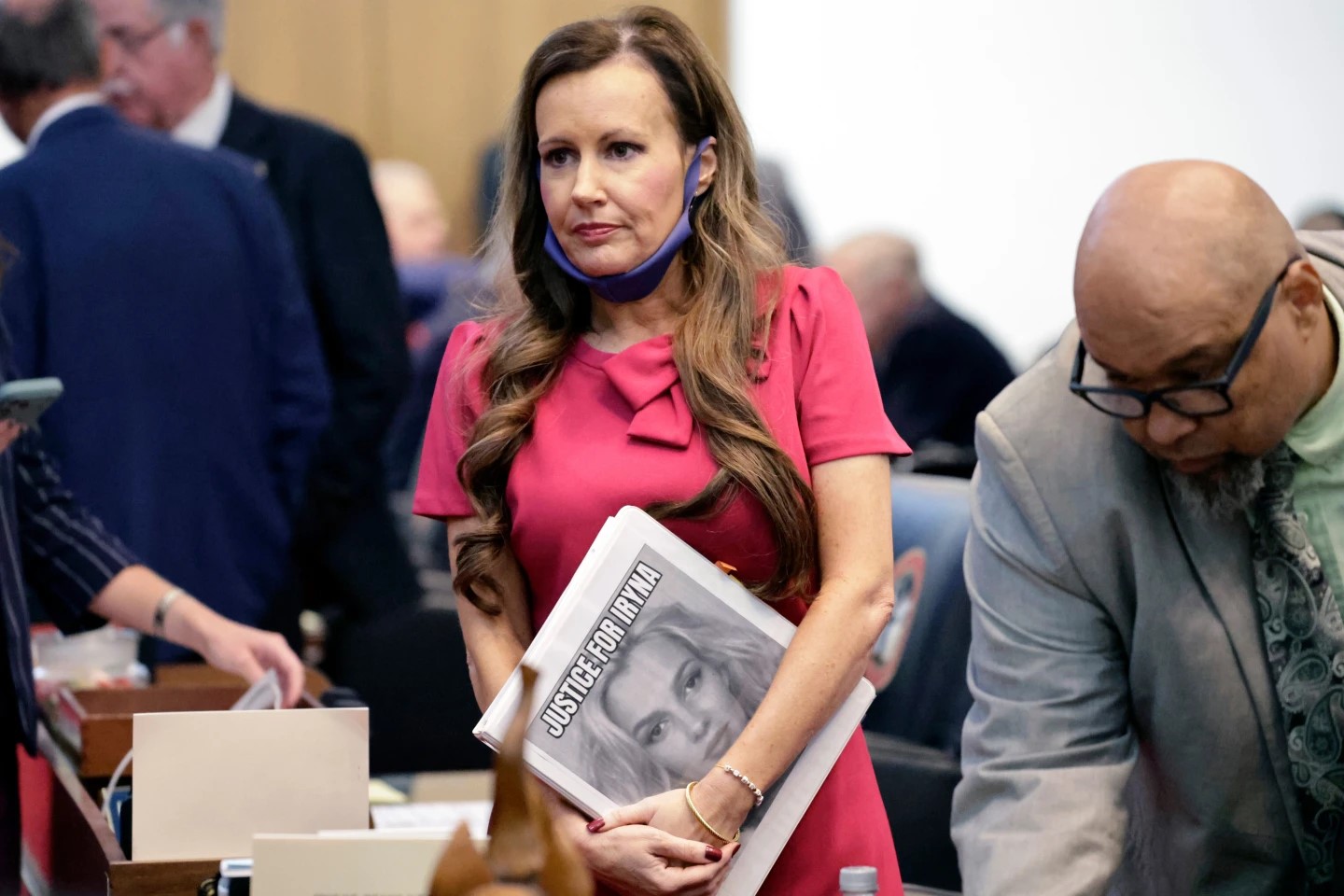
North Carolina Legislature Passes ‘Iryna’s Law’ After Refugee’s Stabbing DeathIn response to the stabbing death of a Ukrainian refugee on Charlotte’s light rail system, the North Carolina legislature gave final approval Tuesday to a criminal justice package that limits bail and seeks to ensure more defendants undergo mental health evaluations.
›









